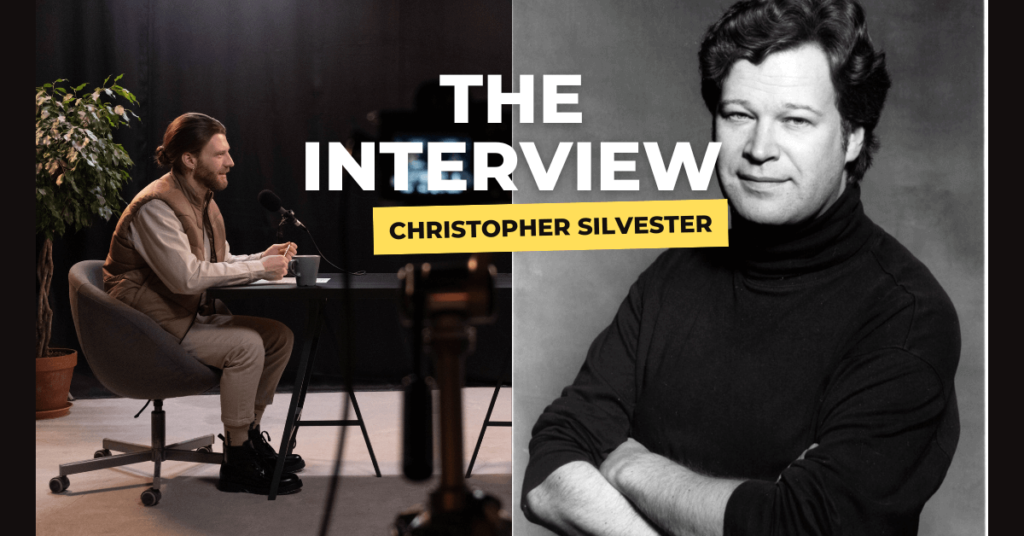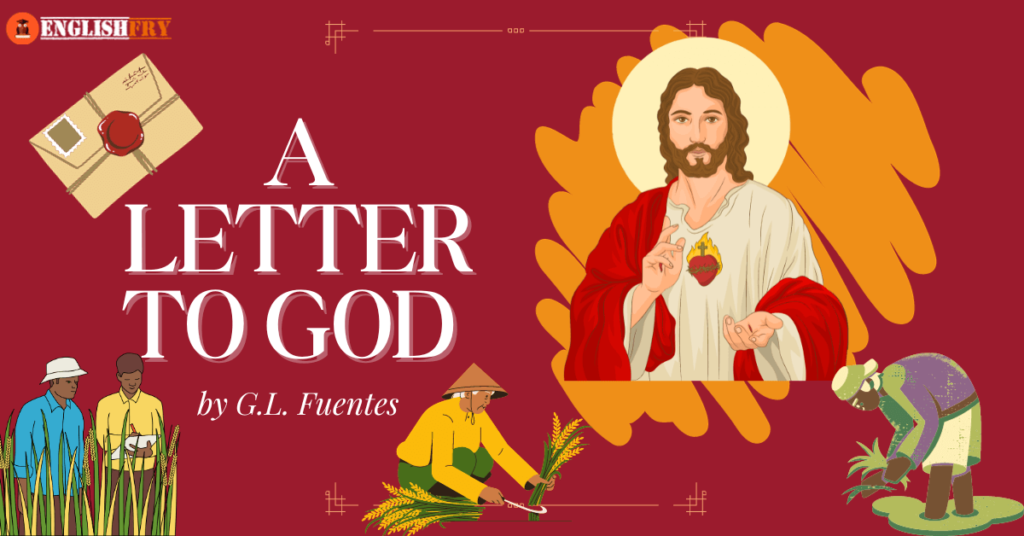Table of Contents
ToggleThe interview Summary
This chapter is an excerpt taken from ‘The Penguin Book of Interviews’. It is written by Christopher Silvester. In this chapter, the author talks about the technique of ‘interview’ as a new way of interrogating. He talks about it with reference to the field of Journalism. Moreover, he also discusses the importance of this new technique.
He goes on to state how the interview has become a vital arena in everyone’s lives, regardless of the class, literacy or anything. We learn about the opinions of many celebrities concerning an interview. Thus, it teaches us about the functions, methods and merits of an interview. Moreover, the author also incorporates an excerpt from an interview with the notorious writer, Umberto Eco. This part allows us to get a glimpse at his literary method.
The chapter starts with the author introducing us to the method of an interview. We learn that it is pretty common in journalism and its origin dates back to 130 years before. He expresses that unsurprisingly, various people carry different opinions about the concept of the interview and its uses. Some people think of it very highly while others cannot bear giving an interview. The chapter tells us that an interview can make a lasting impression. Moreover, as per an old saying, when we make perceptions about a particular person,

The interview Summary in Hindi
यह अध्याय ‘द पेंगुइन बुक ऑफ़ इंटरव्यूज़’ से लिया गया एक अंश है। इसे क्रिस्टोफर सिलवेस्टर ने लिखा है। इस अध्याय में, लेखक पूछताछ के एक नए तरीके के रूप में ‘साक्षात्कार’ की तकनीक के बारे में बात करता है। वह पत्रकारिता के क्षेत्र के संदर्भ में इस बारे में बात करते हैं। इसके अलावा, वह इस नई तकनीक के महत्व पर भी चर्चा करते हैं।
वह आगे बताते हैं कि कैसे साक्षात्कार हर किसी के जीवन में एक महत्वपूर्ण क्षेत्र बन गया है, चाहे वह किसी भी वर्ग, साक्षरता या कुछ भी हो। हम एक इंटरव्यू के संबंध में कई मशहूर हस्तियों की राय के बारे में जानते हैं। इस प्रकार, यह हमें साक्षात्कार के कार्यों, विधियों और गुणों के बारे में सिखाता है। इसके अलावा, लेखक ने कुख्यात लेखक अम्बर्टो इको के साथ एक साक्षात्कार का एक अंश भी शामिल किया है। यह भाग हमें उनकी साहित्यिक पद्धति की एक झलक देखने का अवसर देता है।
अध्याय की शुरुआत लेखक द्वारा हमें साक्षात्कार की पद्धति से परिचित कराने से होती है। हमें पता चला है कि यह पत्रकारिता में काफी आम है और इसकी उत्पत्ति 130 साल पहले हुई थी। वह व्यक्त करते हैं कि आश्चर्य की बात नहीं है कि साक्षात्कार की अवधारणा और इसके उपयोग के बारे में विभिन्न लोग अलग-अलग राय रखते हैं। कुछ लोग इसे बहुत ऊंचा समझते हैं जबकि कुछ लोग इंटरव्यू देना बर्दाश्त नहीं कर पाते। अध्याय हमें बताता है कि एक साक्षात्कार एक स्थायी प्रभाव डाल सकता है। इसके अलावा, एक पुरानी कहावत के अनुसार, जब हम किसी विशेष व्यक्ति के बारे में धारणा बनाते हैं,

The interview Summary in Assamese
এই অধ্যায়টো ‘দ্য পেংগুইন বুক অৱ ইন্টাৰভিউ’ৰ পৰা লোৱা এটা উদ্ধৃতি। ইয়াৰ ৰচনা কৰিছে ক্রিষ্টোফাৰ ছিলভেষ্টাৰে। এই অধ্যায়ত লেখকে ‘সাক্ষাৎকাৰ’ৰ কৌশলটোক জেৰাৰ নতুন পদ্ধতি হিচাপে কৈছে। সাংবাদিকতাৰ ক্ষেত্ৰখনৰ উল্লেখ কৰি তেওঁ এই বিষয়ে কয়। তদুপৰি তেওঁ এই নতুন কৌশলৰ গুৰুত্বৰ বিষয়েও আলোচনা কৰে।
তেওঁ আৰু কয় যে কেনেকৈ সাক্ষাৎকাৰটো সকলোৰে জীৱনৰ এক গুৰুত্বপূৰ্ণ ক্ষেত্ৰ হৈ পৰিছে, শ্ৰেণী, সাক্ষৰতা বা যিকোনো কথা নিৰ্বিশেষে। আমি এটা সাক্ষাৎকাৰ সন্দৰ্ভত বহু চেলিব্ৰিটিৰ মতামতৰ বিষয়ে জানিব পাৰো। এইদৰে ই আমাক সাক্ষাৎকাৰৰ কাৰ্য্য, পদ্ধতি আৰু গুণৰ বিষয়ে শিকাই। তদুপৰি লেখকে কুখ্যাত লেখক উম্বাৰ্ট’ ইকোৰ সৈতে হোৱা সাক্ষাৎকাৰৰ এটা অংশও সন্নিৱিষ্ট কৰিছে। এই অংশৰ জৰিয়তে তেওঁৰ সাহিত্য পদ্ধতিৰ আভাস পোৱা যায়।
অধ্যায়টো আৰম্ভ হয় লেখকে সাক্ষাৎকাৰৰ পদ্ধতিৰ সৈতে পৰিচয় কৰাই দিয়াৰ পৰা। আমি জানিব পাৰিছো যে সাংবাদিকতাত ই যথেষ্ট সাধাৰণ আৰু ইয়াৰ উৎপত্তি ১৩০ বছৰৰ আগৰ পৰাই হৈছিল। তেওঁ প্ৰকাশ কৰে যে আচৰিত নহয় যে সাক্ষাৎকাৰৰ ধাৰণা আৰু ইয়াৰ ব্যৱহাৰৰ বিষয়ে বিভিন্নজনে বিভিন্ন মতামত কঢ়িয়াই লৈ ফুৰে।
কিছুমানে ইয়াক অতি উচ্চ বুলি ভাবে আনহাতে কিছুমানে সাক্ষাৎকাৰ দিয়াটো সহ্য কৰিব নোৱাৰে। অধ্যায়টোত কোৱা হৈছে যে সাক্ষাৎকাৰে স্থায়ী ছাপ পেলাব পাৰে। তদুপৰি পুৰণি কথা এটাৰ মতে যেতিয়া আমি কোনো বিশেষ ব্যক্তিৰ বিষয়ে ধাৰণা লওঁ তেতিয়া

The interview class 12 questions and answers
Q1. What are some of the positive views on interviews?
Ans: The positive views on interviews are that it is a medium of communication and a source of truth and information.
Some even look at it as an art. These days we know about the celebrities and others through their interviews.
Q2. Why do most celebrity writers despise being interviewed?
Ans: Most celebrity writers despise being interviewed because they look at interviews as an unwarranted intrusion into their lives. They feel that it diminishes them. They feel that they are wounded by interviews and lose a part of themselves. They consider interviews immoral and a crime, and an unwanted and unwelcome interruption in their personal life.
Q3. What is the belief in some primitive cultures about being photographed?
Ans: Some primitive cultures consider taking a photographic portrait is like stealing the person’s soul and diminishing him.
Q4. What do you understand by the expression ‘thumbprints on his windpipe’?
Ans: Saul Bellow once described interviews as being like ‘thumbprints on his windpipe’. It means he treated interviews as a painful experience, as something that caught him by his windpipe, squeezed him and left indelible thumbprints on that. It also means that when the interviewer forces personal details from his interviewee, it becomes undesirable and cruel.
Q5. Who, in today’s world, is our chief source of information about personalities?
Ans: The interviewer is the chief source of information in today’s world. Our most vivid impressions of our contemporaries are based on communication that comes
from them. Thus, interviewers hold a position of power and influence.
UNDERSTANDING THE TEXT
Q1. Do you think Umberto Eco likes being interviewed? Give reasons for your opinion.
Ans: Umberto Eco does not think highly of interviewers who he thinks are a puzzled bunch of people. He has reasons for thinking so as they have often interpreted him as a novelist and clubbed him with Pen Clubs and writers, while he considers himself an academic scholar who attends academic conferences and writes novels on Sundays.
Q2. How does Eco find the time to write so much?
Ans: Eco humorously states that there are a lot of empty spaces in his life. He calls them ‘interstices’. There are moments when one is waiting for the other. In that empty space, Eco laughingly states that he writes an article. Then he states that he is a professor who writes novels on Sundays.
Q3. What was distinctive about Eco’s academic writing style?
Ans: Umberto’s writings have an ethical and philosophical element underlying them. His non-fictional writing work has a certain playful and personal quality about it. Even his writings for children deal with non-violence and peace. This style of writing makes reading his novels and essays interesting and being like the reading of most academic writings. His works are marked by an informal and narrative aspect.
Q4. Did Umberto Eco consider himself a novelist first or an academic scholar?
Ans: Umberto identified himself with the academic community, a professor who attended academic conferences rather than meetings of Pen Clubs. In fact, he was quite unhappy that the people referred to him as a novelist.
Q5. What is the reason for the huge success of the novel, The Name of the Rose?
Ans: The success of The Name of the Rose, though a mystery to the author himself, could possibly be because it offered a difficult reading experience to the kind of readers who do not want easy reading experiences and those who look at novels as a machine for generating interpretations. For the same reason, the sale of his novel was underestimated by his American publishers, while the readers actually enjoyed the difficult reading experience that was offered bv Umberto Eco by raising questions about truth and the order of the worid.
SHORT ANSWER TYPE QUESTIONS
Q1. Why did Lewis Carroll have a horror of the interviewer?
Ans: Lewis Carroll was said to have had a just horror of the interviewer. It was his horror of being lionized which made
him thus repel would-be acquaintances, interviewers, and those seeking his autographs. So, he never consented to be interviewed.
Q2. How did Rudyard Kipling look at interviews?
Ans: Rudyard Kipling condemned interviews. His wife writes in her diary that Rudyard Kipling told the reporters that he called being interviewed as immoral and a crime like an offence against any person. It merited punishment. It was cowardly and vile.
Q3. How were Rudyard Kipling and H.G. Wells critical of interviews yet they indulged in interviewing others or being themselves interviewed?
Ans: Rudyard Kipling criticized interviews yet he interviewed Mark Twain. H.G. Wells referred to an interview in 1894 as an ordeal. Yet he was a fairly frequent interviewee. He also interviewed Joseph Stalin forty years later.
Q4. How are interviews, despite their drawbacks, useful?
Ans: Despite their drawbacks, interviews are a supremely serviceable medium of communication. We get ‘ our most vivid impressions of our contemporaries through interviews.
Denis Brain writes that almost everything of moment reaches us through interviews.
Q5. What, according to Umberto Eco, is the one thing he does through his various pieces of writing?
Ans: According to Eco, he is always pursuing his ethical, philosophical interests which are non-violence and peace, through his academic work, his novels and even his books for children. He uses his spare moments constructively.
Q6. Umberto Eco tells Mukund that he has a secret. What is that?
Ans: Umberto Eco tells Mukund that he has a secret to reveal. He tells him that there are empty spaces in the universe, in all the atoms. If they are removed, the universe will shrink to the size of a fist. He calls these empty spaces interstices and he writes in these interstices.
Q7. How, according to one of Eco’s professors in Italy, do scholars do in their research? How is
Eco’s approach different?
Ans: According to one of Eco’s professors in Italy, scholars made a lot of false hypotheses. They correct them and at the end they put the conclusion. But Eco told the story of his
research and included his trials and errors. His professor allowed the publication of Eco’s dissertation as a book.
Q8. What did Umberto Eco learn at the age of 22 that he pursued in his novels?
Ans: At the age of 22, Umberto Eco understood that scholarly books should be written the way he had done, that is, they should be written by telling the story of the research. He means to say that they should have the narrative technique.
That’s why he started writing novels so late—at the age of 50.
Q9. How did Eco start writing novels?
Ans: Eco states that he started writing novels by accident. One day, he had nothing to do, so he started writing. He felt that novels probably satisfied his taste for narration and he produced five novels, including the famous The Name of the Rose.
Q10. Did Umberto Eco consider himself a novelist first or an academic scholar? Discuss briefly.
Ans: Umberto Eco considered himself an academic scholar, a university professor who wrote novels on Sundays. If somebody said that he was a novelist, that bothered him. He participated in academic conferences and not the meetings of
Pen Clubs and writers. He identified himself with academic community.
Q11. What makes Eco’s The Name of the Rose a very serious novel?
Ans: The Name of the Rose is a very serious novel. It is a detective story at one level but it also delves into metaphysics, theology and medieval history. Due to these reasons it was greatly received by the public.
Q12. What, according to Eco, puzzles journalists and publishers?
Ans: According to Umberto Eco, journalists and publishers are puzzled when something unexpected happens. They believe that people like trash and do not like difficult reading experiences. But Eco’s novel The Name of the Rose, a serious work, sold between 10 and 15 million copies. This puzzled them.
Q13. What is the reason for the huge success of the novel, The Name of the Rose?
Ans: The reason for the huge success of the novel, according to Eco, is a mystery. Nobody can predict it. He states that if he had written the novel ten years earlier or ten years later, it wouldn’t have been the same. So, the time component, its
narrative technique, its aspects of metaphysics, theology and medieval history, made it a grand success.
Q14. Do you think Umberto Eco likes being interviewed? Give reasons for your opinion.
Ans: I think Eco likes being interviewed. His answers to Mukund’s questions are straightforward, precise and to the point. They are never wavering. He even mentions his preferences about TV shows. While answering he gets humorous and laughs. Nowhere does he say anything that may give us this sort of glimpse that he does not like being interviewed.
Q15. Is Umberto’s informal style consciously adopted or natural?
Ans: Umberto’s doctoral thesis was a story of his research and a sum of his experience, his trials and errors. The thesis was appreciated and published as a book. Umberto then developed on his taste for narration and this narrative aspect lends an informal touch to all his essays and novels. It makes his style alive and reading his works is not dry and boring like the reading of other academic works.







